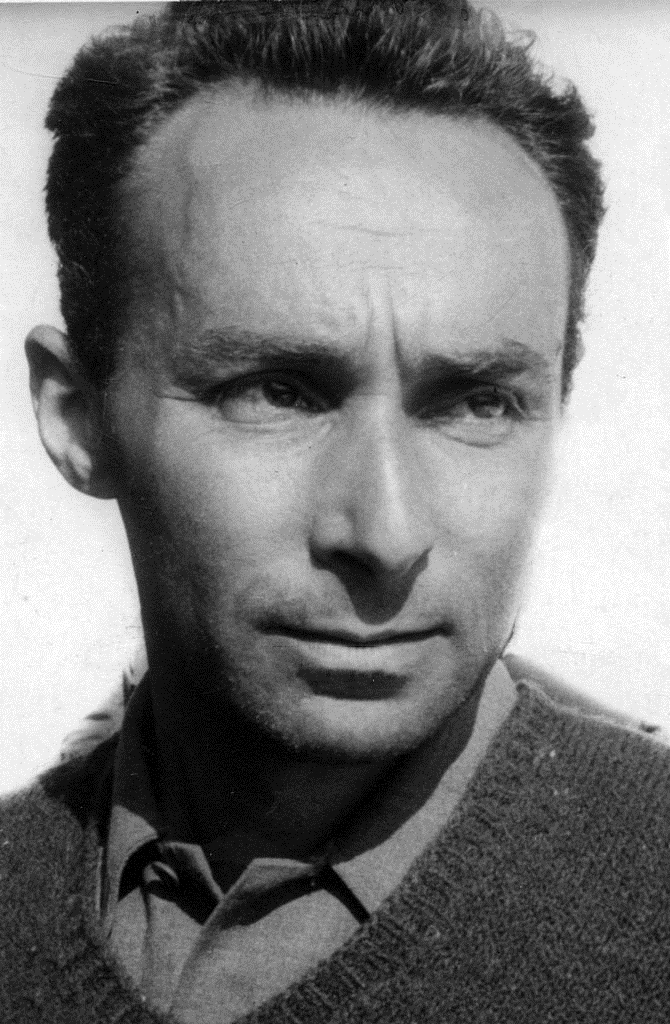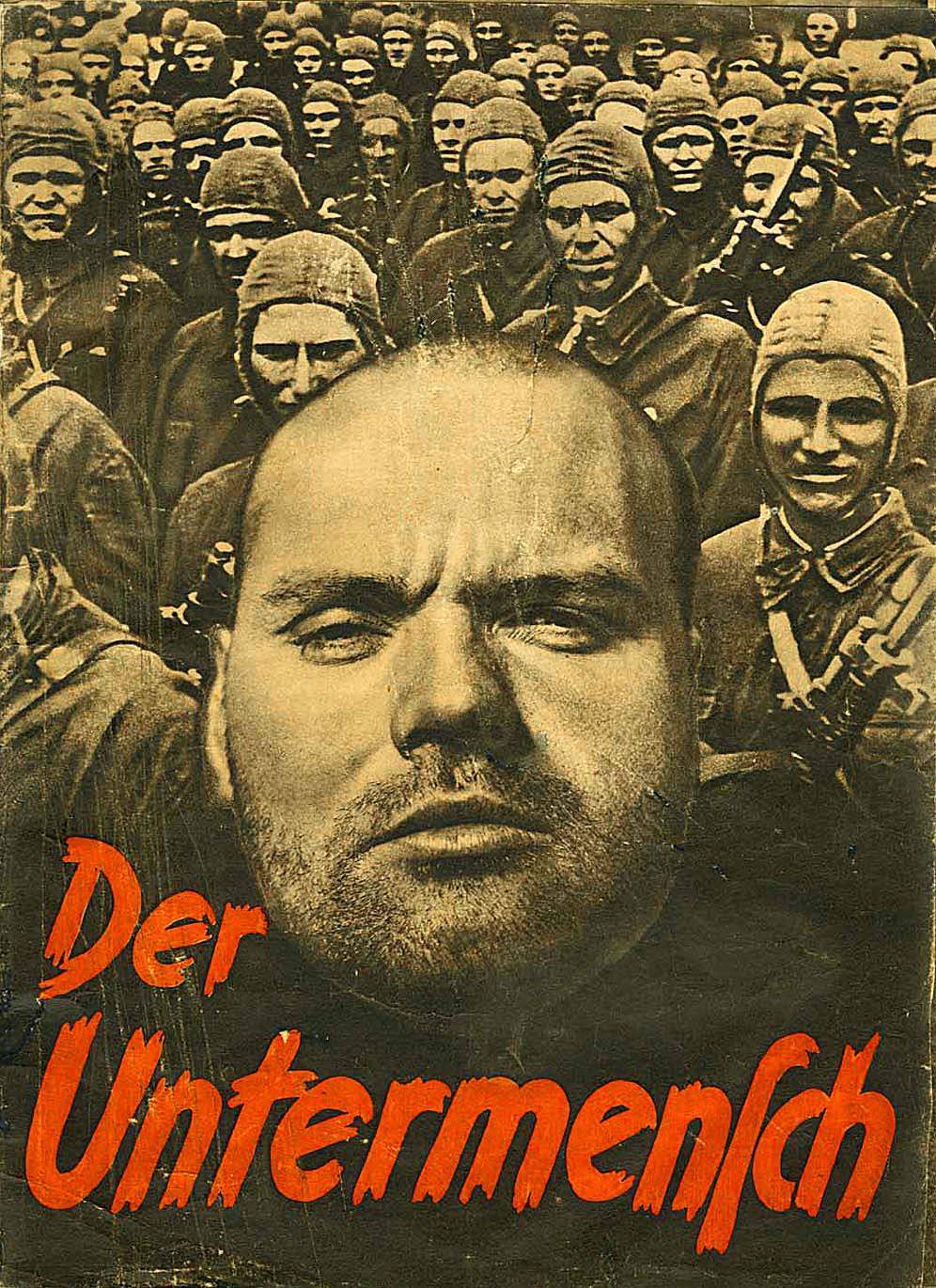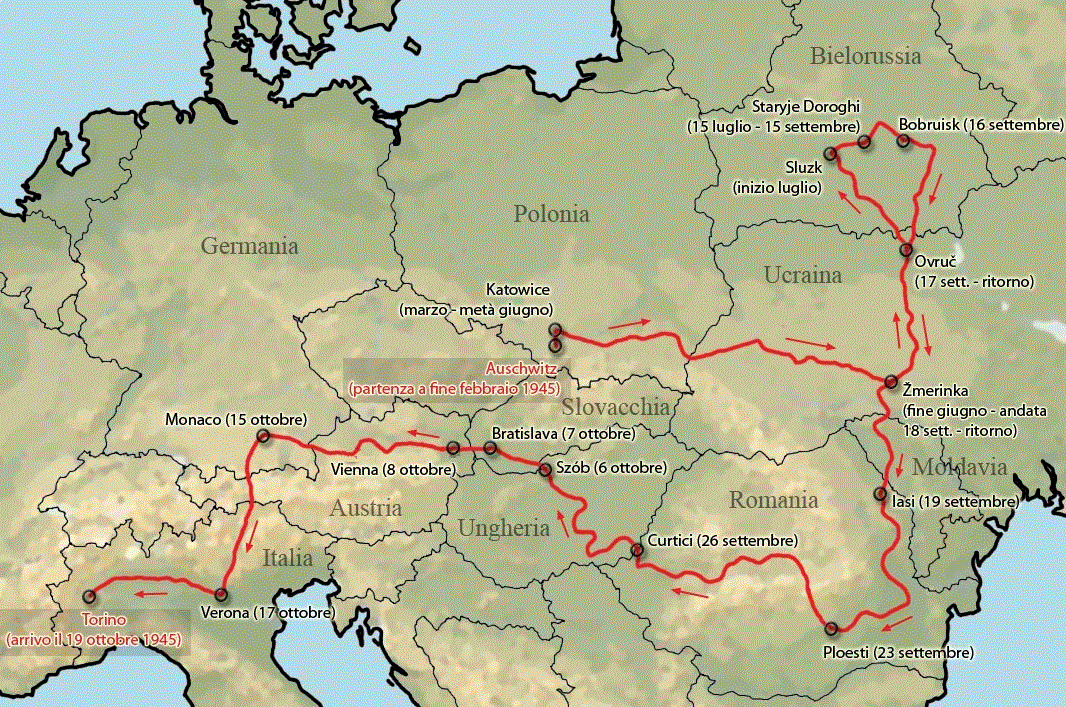|
If This Is A Man
''If This Is a Man'' ( ; United States title: ''Survival in Auschwitz'') is a memoir by History of the Jews in Italy, Jewish Italians, Italian writer Primo Levi, first published in 1947. It describes his arrest as a member of the Italian resistance movement, Italian anti-fascist resistance during the World War II, Second World War, and his incarceration in the Auschwitz concentration camp (Monowitz concentration camp, Monowitz) from February 1944 until the camp was liberated on 27 January 1945. Background to the memoir Primo Levi was born in 1919 in Turin. His forebears were History of the Jews in Turin, Piedmontese Jews. He studied chemistry at the University of Turin, graduating ''summa cum laude'' in 1942, notwithstanding the restrictions imposed by Mussolini's Manifesto of Race, racial laws. In 1942 he found a position with a Swiss drug company in Milan. With the German occupation of northern and central Italy in 1942, Levi joined a partisan group in Aosta Valley in the Alps ... [...More Info...] [...Related Items...] OR: [Wikipedia] [Google] [Baidu] |
Primo Levi
Primo Michele Levi (; 31 July 1919 – 11 April 1987) was a Jewish Italian chemist, partisan, Holocaust survivor and writer. He was the author of several books, collections of short stories, essays, poems and one novel. His best-known works include: '' If This Is a Man'' (''Se questo è un uomo'', 1947, published as ''Survival in Auschwitz'' in the United States), his account of the year he spent as a prisoner in the Auschwitz concentration camp in Nazi-occupied Poland; and '' The Periodic Table'' (1975), a collection of mostly autobiographical short stories, each named after a chemical element which plays a role in each story, which the Royal Institution named the best science book ever written. Levi died in 1987 from injuries sustained in a fall from a third-storey apartment landing. His death was officially ruled a suicide, although that has been disputed by some of his friends and associates and attributed to an accident. Biography Early life Levi was born in 1919 i ... [...More Info...] [...Related Items...] OR: [Wikipedia] [Google] [Baidu] |
Aosta Valley
The Aosta Valley ( ; ; ; or ), officially the Autonomous Region of Aosta Valley, is a mountainous Regions of Italy#Autonomous regions with special statute, autonomous region in northwestern Italy. It is bordered by Auvergne-Rhône-Alpes, France, to the west; by Valais, Switzerland, to the north; and by Piedmont, Italy, to the south and east. The regional capital is Aosta. Covering an area of and with 122,714 inhabitants as of 2025, it is the smallest, least populous, and least densely populated region of Italy. The province of Aosta having been dissolved in 1945, the Aosta Valley region was the first region of Italy to abolish provincial subdivisions, followed by Friuli-Venezia Giulia in 2017 (where they were reestablished later). Provincial administrative functions are provided by the regional government. The region is divided into 74 (). Italian language, Italian and Aostan French, French are the official languages, and the Valdôtain dialect of Franco-Provençal is als ... [...More Info...] [...Related Items...] OR: [Wikipedia] [Google] [Baidu] |
Untermensch
''Untermensch'' (; plural: ''Untermenschen'') is a German language word literally meaning 'underman', 'sub-man', or ' subhuman', which was extensively used by Germany's Nazi Party to refer to their opponents and non- Aryan people they deemed as inferior. It was mainly used against "the masses from the East", that is Jews, Roma, and Slavs (mainly ethnic Poles, Belarusians, Czechs, Ukrainians, Russians and Serbs). The term was also applied to "'' Mischling''" (persons of mixed "Aryan" and non-Aryan ancestry) and black people. Jewish, Slavic, and Romani people, along with the physically and mentally disabled, as well as homosexuals and political dissidents, and on rare instances, POWs from Western Allied armies, were considered untermenschen who were to be exterminated in the Holocaust. According to the '' Generalplan Ost'', the Slavic population of East-Central Europe was to be reduced in part through mass murder in the Holocaust for ''Lebensraum'', with a significant ... [...More Info...] [...Related Items...] OR: [Wikipedia] [Google] [Baidu] |
John Florio Prize
The John Florio Prize for Italian translation is awarded by the Society of Authors, with the co-sponsorship of the Italian Cultural Institute and Arts Council England. Named after the Tudor Anglo-Italian writer-translator John Florio Giovanni Florio (1552 or 1553 – 1625), known as John Florio, was an English linguist, poet, writer, translator, lexicographer, and royal language tutor at the Court of James I. He is recognised as the most important Renaissance humanist in ..., the prize was established in 1963. As of 1980 it is awarded biannually for the best English translation of a full-length work of literary merit and general interest from Italian. Winners and shortlistees 1960–1979 annual run 1980–2004 biennial winners 2006–present biennial winners, runners-up, and shortlisted works = winner 2024 judges Maame Blue Maame Blue is a creative writing tutor and author of the novel Bad Love, which won the 2021 Betty Trask award. Her short stories hav ... [...More Info...] [...Related Items...] OR: [Wikipedia] [Google] [Baidu] |
The Truce
''The Truce'' (), titled ''The Reawakening'' in the US, is a book by the Italian author Primo Levi. It is the sequel to ''If This Is a Man'' and describes the author's experiences from the liberation of Auschwitz ( Monowitz), which was a concentration camp A concentration camp is a prison or other facility used for the internment of political prisoners or politically targeted demographics, such as members of national or ethnic minority groups, on the grounds of national security, or for exploitati ..., until he reaches home in Turin, Italy, after a long journey. He describes the situation in different Displaced persons camps in post-World War II Europe, displaced persons camps after the Second World War. Summary The historian Fritz Stern, in a brief review on ''Foreign Affairs'', wrote that ''The Reawakening'' "charts Levi's incredibly circular return to Italy via Eastern Europe and the Soviet Union. Here people and landscapes come vividly alive in a bizarre, often comical s ... [...More Info...] [...Related Items...] OR: [Wikipedia] [Google] [Baidu] |
Robert Gordon (academic)
Robert Samuel Clive Gordon, FBA (born 13 March 1966) is a scholar of Italian studies and an academic. Since 2012, he has been Serena Professor of Italian at the University of Cambridge. Career Born on 13 March 1966, Robert Samuel Clive Gordon completed his undergraduate studies at Pembroke College, Oxford. He joined St John's College, Cambridge, to complete a doctorate; his PhD was awarded in 1993 for his thesis "Pier Paolo Pasolini and the work of subjectivity". He was elected a lecturer and fellow at Pembroke College, Oxford, in 1990, and left in 1998 to become a lecturer at the University of Cambridge and a Fellow at Gonville and Caius College, Cambridge; he was promoted to senior lecturer in 2001, a readership in 2006, and a professorship in 2011. The following year, he was appointed Serena Professor of Italian at Cambridge. [...More Info...] [...Related Items...] OR: [Wikipedia] [Google] [Baidu] |
The Drowned And The Saved
''The Drowned and the Saved'' () is a book of essays by Italian-Jewish author and Holocaust survivor Primo Levi on life and death in the Nazi extermination camps, drawing on his personal experience as a survivor of Auschwitz ( Monowitz). The author's last work, written in 1986, a year before his death, ''The Drowned and the Saved'' is an attempt at an analytical approach, in contrast to his earlier books '' If This Is a Man'' (1947) and '' The Truce'' (1963), which are autobiographical. Contents :Preface # The Memory of the Offense # The Grey Zone # Shame # Communicating # Useless Violence # The Intellectual in Auschwitz # Stereotypes #Letters from Germans :Conclusion Miscellaneous The title of one essay (''The Grey Zone'') was used as title for the film '' The Grey Zone'' (2001), which is based on a book by Miklós Nyiszli Miklós Nyiszli (17 June 1901 – 5 May 1956) was a Hungarian prisoner of Jewish heritage at Auschwitz concentration camp. Nyiszli, his wife, ... [...More Info...] [...Related Items...] OR: [Wikipedia] [Google] [Baidu] |
Germany
Germany, officially the Federal Republic of Germany, is a country in Central Europe. It lies between the Baltic Sea and the North Sea to the north and the Alps to the south. Its sixteen States of Germany, constituent states have a total population of over 84 million in an area of , making it the most populous member state of the European Union. It borders Denmark to the north, Poland and the Czech Republic to the east, Austria and Switzerland to the south, and France, Luxembourg, Belgium, and the Netherlands to the west. The Capital of Germany, nation's capital and List of cities in Germany by population, most populous city is Berlin and its main financial centre is Frankfurt; the largest urban area is the Ruhr. Settlement in the territory of modern Germany began in the Lower Paleolithic, with various tribes inhabiting it from the Neolithic onward, chiefly the Celts. Various Germanic peoples, Germanic tribes have inhabited the northern parts of modern Germany since classical ... [...More Info...] [...Related Items...] OR: [Wikipedia] [Google] [Baidu] |
Stuart Woolf
Stuart Joseph Woolf (23 January 1936 – 1 May 2021) was an English-Italian historian. Woolf was emeritus professor of contemporary history at the Ca' Foscari University of Venice, where he had taught from 1996 to 2006. Prior to this he taught at the European University Institute in Florence from 1984 to 1992 and at the University of Essex where he was Foundation Professor of History beginning in 1975. He previously held appointments at the University of Reading and Pembroke College in the University of Cambridge. He also held a number of visiting appointments at European, American and Australian universities, including Columbia University in New York and the École des hautes études en sciences sociales in Paris. Educated at St Marylebone Grammar School he attended Merton College in the University of Oxford, graduating in 1956. Tutored by Roger Highfield and J. M. Roberts, he subsequently undertook research toward a doctoral degree under the supervision of H. R. Trevor-Rop ... [...More Info...] [...Related Items...] OR: [Wikipedia] [Google] [Baidu] |
The Guardian
''The Guardian'' is a British daily newspaper. It was founded in Manchester in 1821 as ''The Manchester Guardian'' and changed its name in 1959, followed by a move to London. Along with its sister paper, ''The Guardian Weekly'', ''The Guardian'' is part of the Guardian Media Group, owned by the Scott Trust Limited. The trust was created in 1936 to "secure the financial and editorial independence of ''The Guardian'' in perpetuity and to safeguard the journalistic freedom and liberal values of ''The Guardian'' free from commercial or political interference". The trust was converted into a limited company in 2008, with a constitution written so as to maintain for ''The Guardian'' the same protections as were built into the structure of the Scott Trust by its creators. Profits are reinvested in its journalism rather than distributed to owners or shareholders. It is considered a newspaper of record in the UK. The editor-in-chief Katharine Viner succeeded Alan Rusbridger in 2015. S ... [...More Info...] [...Related Items...] OR: [Wikipedia] [Google] [Baidu] |
Natalia Ginzburg
Natalia Ginzburg (, ; ; 14 July 1916 – 7 October 1991) was an Italian author whose work explored family relationships, politics during and after the Fascist years and World War II, and philosophy. She wrote novels, short stories and essays, for which she received the Strega Prize and Bagutta Prize. Most of her works were also translated into English and published in the United Kingdom and the United States. An activist, for a time in the 1930s she belonged to the Italian Communist Party. In 1983, she was elected to Parliament from Rome as an independent politician. Early life and education Born as Natalia Levi in Palermo, Sicily, in 1916, she spent most of her youth in Turin with her family, as her father in 1919 took a position with the University of Turin. Her father, Giuseppe Levi, a renowned Italian histologist, was born into a Jewish Italian family, and her mother, Lidia Tanzi (the sister of Drusilla Tanzi and Silvio Tanzi), was Catholic. Her parents were secu ... [...More Info...] [...Related Items...] OR: [Wikipedia] [Google] [Baidu] |



